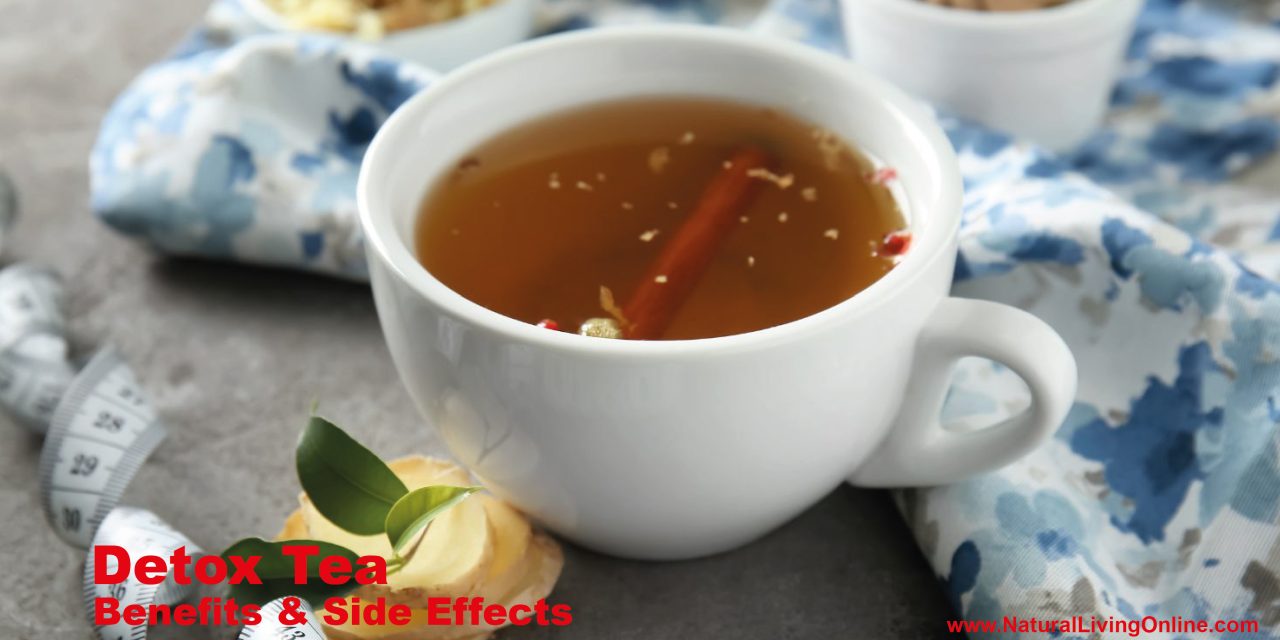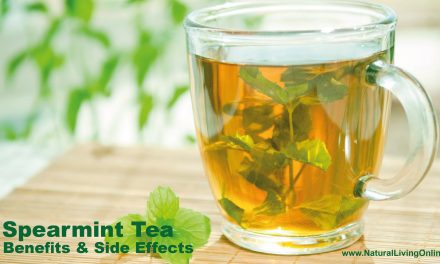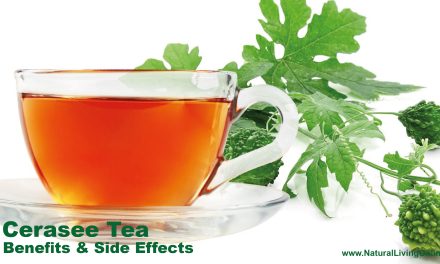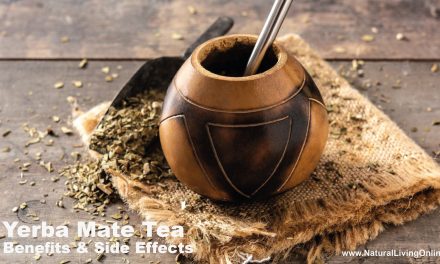Detox teas have gained popularity for their purported ability to help the body cleanse and lose weight. These teas often claim to boost energy, support digestion, and strengthen the immune system. Despite these appealing benefits, it’s essential to be aware of the potential side effects and health risks that come with their use.
Detox teas usually contain a blend of herbs and caffeine, which can provide a temporary boost in energy and promote water loss. However, the weight loss results are often short-lived and primarily due to the loss of water and electrolytes. Some people may also experience adverse effects like dehydration, digestive problems, or even more severe health issues.
Understanding both the benefits and the drawbacks of detox tea is crucial for making informed decisions about incorporating it into your lifestyle. For those intrigued by the promises these teas make, being well-informed about their ingredients and potential health impacts can help you use them safely and effectively.
Key Takeaways
- Detox teas can offer short-term energy boosts and water loss.
- Potential side effects include dehydration and digestive problems.
- Knowledge of ingredients and risks is essential for safe usage.
Understanding Detox Teas

Detox teas claim to help cleanse the body of toxins and support weight loss. They often contain a mix of herbal ingredients believed to offer various health benefits.
What Is Detox Tea
Detox tea is a type of beverage made from a blend of herbs and plants. The primary goal of detox tea is to support the body’s natural detoxification processes, often targeting the liver. These teas are designed to help flush out toxins and improve digestion.
Some detox teas include ingredients like green tea, which is high in antioxidants. Antioxidants are compounds that can help neutralize free radicals, potentially reducing damage to cells. Other common components may act as diuretics or laxatives, aiming to promote water loss and bowel movements.
Common Ingredients and Their Purposes
Common ingredients in detox teas often include ginger, dandelion, and senna. Each ingredient serves a specific purpose:
- Green Tea: Rich in antioxidants, it may assist in detoxification and weight loss.
- Ginger: Known for its anti-inflammatory properties, it can help soothe the digestive system.
- Dandelion: Often used to support liver health and bile production.
- Senna: A natural laxative that helps stimulate bowel movements.
Dandelion and ginger both support the liver, aiding in the detoxification process. Meanwhile, senna is included for its laxative effect, helping to clear out the digestive tract. Each of these ingredients plays a specific role in promoting a feeling of wellness and cleansing.
In conclusion, detox teas incorporate a variety of ingredients aimed at supporting the body’s natural detox processes.
Health Benefits of Detox Teas

Detox teas offer several health benefits due to their ingredients. They can boost metabolism, support digestion, and provide hydration along with essential nutrients.
Metabolic Boost and Weight Loss
Detox teas can help increase metabolism and promote weight loss. Some ingredients, like caffeine, can temporarily boost energy levels and fat burning. Caffeine acts as a diuretic, making the body lose water weight.
Detox teas often contain green tea, which has antioxidants that may aid in weight loss when combined with a healthy diet. The temporary weight loss from detox teas is usually due to water and not fat reduction.
It’s essential to maintain a balanced diet and exercise for effective weight management.
Digestive System Support
Supporting digestive health is another benefit of detox teas. Ingredients like ginger help soothe digestion by reducing nausea and bloating. They also encourage the body to produce saliva, bile, and enzymes essential for the digestive process.
Herbs in detox teas may promote bowel movements, helping the body eliminate waste. This can lead to improved digestion and relief from constipation. However, frequent use can cause dependency and potential digestive discomfort.
Moderation is key when using detox teas to support digestion.
Hydration and Nutritional Support
Detox teas help with hydration, which is important for overall health. Hydrating with teas can be beneficial, especially when they are free from added sugars and artificial ingredients. Drinking enough fluids is critical for maintaining various bodily functions.
Moreover, detox teas often contain nutrients and antioxidants that support the immune system. Vitamins like vitamin C and vitamin A, along with other antioxidants, help protect the body from oxidative stress.
Hydrating with detox teas can contribute to heart health and overall well-being by providing key vitamins and promoting nutrient absorption. However, it’s crucial to drink these teas sensibly and not rely on them solely for nutritional needs.
Maintaining a balanced diet rich in fruits, vegetables, and whole grains is essential for overall health and wellness.
Potential Side Effects and Concerns

Detox teas can provide certain benefits, but they also come with potential side effects and risks. Important concerns include digestive issues, dehydration, medication interactions, and long-term health effects.
The Laxative Effect and Digestive Health
Many detox teas contain natural laxatives or ingredients that act like laxatives, such as senna. These can cause frequent bowel movements, leading to diarrhea and cramping. While some may find this effect beneficial for short-term relief, prolonged use can result in more severe issues, such as electrolyte imbalance and dehydration.
Extended use of laxatives may also harm the colon, leading to dependency where normal bowel function becomes compromised. This laxative effect may over time disrupt the digestive system, causing more harm than good.
Dehydration and Electrolyte Imbalance
Detox teas often include caffeine, which acts as a diuretic. Diuretics increase urine production, leading to potential dehydration. Symptoms of dehydration include dizziness, dry mouth, and fatigue.
Coupled with the laxative effect, dehydration risks are heightened. Loss of fluids can lead to an imbalance in electrolytes such as potassium and sodium. This imbalance may affect heart health, causing irregular heartbeat or palpitations, and ultimately impact overall bodily functions.
Interaction with Medications
Certain ingredients in detox teas can interact with medications. For example, caffeine may increase blood pressure, making it risky for those on hypertension medications. Diuretics in these teas can affect how the body processes other medications as well.
Anyone taking blood pressure medication, cholesterol-lowering drugs, or treatments for diabetes should consult a healthcare provider before consuming detox teas. The risk of adverse interactions is significant and should not be overlooked.
Long-Term Health Risks
Frequent and prolonged use of detox teas can present long-term health risks. Continuous use of laxatives can damage the colon and lead to chronic digestive problems. Dehydration and electrolyte imbalance over time can negatively impact kidney function and overall health.
There’s increasing concern that these teas may affect those with a predisposition to gallstones or other digestive issues. Additionally, the strain from excessive caffeine might contribute to heart disease or exacerbate high blood pressure. Users should be mindful of these potential long-term consequences.
Safety Guidelines and Best Practices
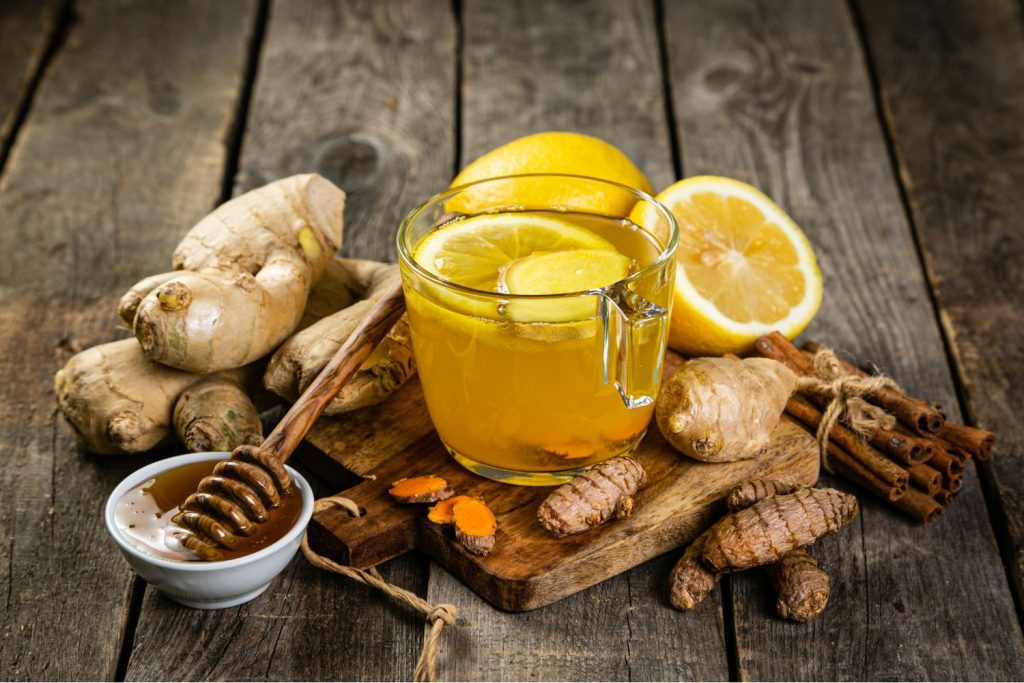
When using detox teas, it’s crucial to follow safety guidelines to avoid potential health risks. This includes understanding the recommended dosage and frequency, as well as selecting high-quality brands that adhere to safety standards.
Recommended Dosage and Frequency
To ensure safe consumption of detox teas, it’s important to follow the dosage guidelines provided by the manufacturer. Most experts recommend drinking detox tea in moderation, typically no more than one cup per day.
Exceeding this amount can lead to side effects, especially if the tea contains laxative ingredients like senna. Overuse of laxatives can cause dehydration and electrolyte imbalances. It’s also advised to avoid long-term use of detox teas to prevent dependency and potential liver damage.
To minimize risks, individuals should consult their healthcare provider before starting any new detox tea regimen, especially if they have pre-existing health conditions or take medications that could interact with herbal ingredients like burdock and yerba mate.
Choosing Quality Detox Tea Brands
Selecting a detox tea from a reputable brand is critical for safety. Look for brands that are transparent about their ingredients and have certifications from reputable organizations. The Food and Drug Administration (FDA) does not regulate dietary supplements as strictly as medications, making it essential to choose products that undergo third-party testing for quality and safety.
Avoid teas with unidentified or proprietary blends that could hide harmful ingredients. Instead, opt for products listing all components, such as oolong tea, milk thistle, dandelion tea, peppermint, and chamomile. Ensuring the tea is free from artificial flavorings, colors, and preservatives is also vital to avoid adverse reactions.
Consumers can check reviews and ratings to gauge the effectiveness and safety of the detox tea. Trusted brands often have positive feedback and are recommended by healthcare professionals for their quality standards.
Detox Teas and Lifestyle Considerations
Detox teas can be a part of a healthy lifestyle when integrated thoughtfully. They should support existing habits, such as proper nutrition and regular exercise, rather than replace them.
Incorporating Detox Teas into a Healthy Diet
To integrate detox teas effectively, focus on maintaining a balanced diet. These teas complement a diet rich in fruits, vegetables, and lean proteins. They may help with hydration and provide antioxidants that support overall wellness. Using detox teas as a substitute for sugary drinks can reduce calorie intake and support weight management, particularly water weight reduction.
However, relying solely on detox teas for weight loss is not advisable. These teas may lead to temporary loss of water weight, but for sustained fat loss, a healthy diet and lifestyle changes are essential. Keep an eye on the tea’s ingredients, avoiding those with excessive laxative effects to prevent dehydration and ensure regular bowel movements. Maintaining a nutrient-rich diet will support the body’s natural detox processes.
Complementary Practices for Detoxification
In addition to drinking detox teas, regular exercise is crucial. Physical activity helps the body naturally detoxify through sweat and supports fat loss, including belly fat. Activities like yoga or cardio can be particularly beneficial.
Staying well-hydrated by drinking plenty of water alongside detox teas ensures the body efficiently flushes out toxins. Adequate hydration supports the kidneys and liver, key organs in detoxification.
Other complementary practices include sufficient sleep and managing stress. Quality sleep helps the body recover and detoxify, while stress management through meditation or hobbies can reduce toxin buildup. Combining these practices with the moderate use of detox teas can enhance their health benefits and support a holistic approach to wellness.
Frequently Asked Questions
What are the potential side effects of consuming detox teas?
Detox teas can cause side effects such as digestive issues, including diarrhea, stomach cramps, and nausea. These issues often arise if the tea contains strong laxative herbs like senna or cascara sagrada. Some people may also experience allergic reactions to certain ingredients.
How can detox tea aid in weight loss?
Detox teas may aid in weight loss by acting as diuretics. They help the body shed water weight through increased urination. However, this weight loss is typically temporary and can return once a normal diet resumes. Some detox teas also encourage bowel movements, which might give an impression of weight loss.
Is there a recommended time of day to drink detox tea for optimal results?
Experts generally recommend drinking detox tea in the morning or early afternoon. Consuming it earlier in the day can help boost energy levels and metabolism. Drinking detox tea too late in the evening might disrupt sleep due to its caffeine content or diuretic effects.
Can detox tea help reduce belly fat specifically?
There is no concrete evidence that detox tea can reduce belly fat specifically. While it may help in shedding water weight and temporarily decreasing bloating, fat loss typically requires a combination of a balanced diet, regular exercise, and a healthy lifestyle.
How long does it typically take to see the effects of drinking detox tea?
The effects of detox tea can be noticed within a few days to a week, depending on the individual’s body and the ingredients in the tea. Initial changes might include increased urination and bowel movements. Long-term effects, if any, vary from person to person.
Are there any risks associated with drinking detox tea on a daily basis?
Drinking detox tea daily can pose health risks, particularly if the tea contains laxative ingredients. Overuse can lead to dehydration, nutrient deficiencies, and electrolyte imbalances. Consume detox teas in moderation and consult a healthcare provider before making them a daily habit.
This website does not provide medical advice.
All information provided on this website, and on associated social media networks, including but not limited to texts, images, and numbers are for general information purpose only. It is not intended as medical advice and it does not include all possible precautions, side effects, or interactions that may occur. Neither NaturalLivingOnline.com nor its author/founder take responsibility for how you use this information. Statements contained on NaturalLivingOnline.com have not been evaluated by the FDA. You should conduct thorough research via multiple sources and consult your physician or qualified doctor before using any essential oil or herbal remedy. Information on NaturalLivingOnline.com must not be relied upon for medical, legal, financial or other decisions.

